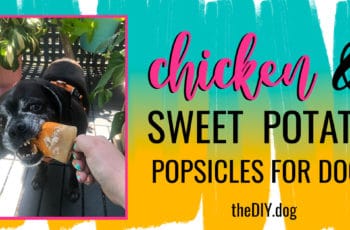A few years ago, we added a column in our “Approved Dry Dog Foods” tables – an additional data point for people who are looking for certain attributes in their dog’s food. The column is “Meat, Meat Meal, or Both.” The information in this column helps consumers find products that are among the more than 1,100 options on our “Approved Dry Dog Foods” list that contain only a fresh or frozen source of (named) animal protein (in this instance, “meat” would be indicated in this column), “meat meal” (meaning a dry, rendered meal made from a named animal source), or “Both,” indicating both a named meat and a named meat meal (e.g., chicken and chicken meal).
The reasons behind our collection and inclusion of this information were thoroughly outlined in “Meat and Meat Meal: Sorting Through Animal Protein Sources.” But, to recap in an abbreviated way, “meat” is (relatively) fresh tissues from slaughtered animals. Because it contains a lot of moisture, its protein content in relatively low. In contrast, the protein content in “meat meal” is much higher, because much of the moisture (water) has been removed with heat. Pet food makers can use meat meal alone to produce a kibble with sufficient (and far more than sufficient) levels of protein, but if they use meat only, they often have to also include one or two or three sources of plant-sourced proteins. Often, the makers of premium pet foods use both, in order to have a higher-protein product that’s also maximally palatable (attractive in taste and aroma) to dogs.
SUBSCRIBERS ONLY: Whole Dog Journal’s 2022 Approved Dry Dog Foods
What’s better: Meat or Meat Meal in Dog Food?
What’s best? We won’t take a position on this. It’s practically a political or religious topic among some pet owners! Our opinion is always, “Whatever works best for your individual dogs.” Performance, in pet-food industry parlance, is what’s most important to us.
The companies who make and market foods with meat only make a case for their stance. Halo is probably the most vociferous about it; they have a whole page of information containing their rationale here. When you read marketing materials, though, you always have to be alert for hyperbole. Their page begins:
“Meat meal” is a primary ingredient in most dry cat food and dog food, and it is made from taking slaughterhouse and fish processing factory remnants that are not edible for humans, and cooking them, processing them under high heat, and dehydrating them into a dry powdery substance that goes into kibble.

What they don’t say is that the “meat” used in pet food is also taken from “slaughterhouse and fish processing factory remnants that are not edible for humans” and, to make kibble, is cooked under high heat and pressure and then dried into a granular substance.
That said, there are certain benefits to foods made without meat meal, and they “perform” best for some dogs. For other dogs, the often-high inclusion of plant-sourced proteins (or other factors) may offset those benefits.
Our recommendation is always this: Try products with different formulations and attributes and – this is critical – keep track of what you are feeding and what changes (if any) you observe in your dog. It’s absolutely undisputed that some dogs do better on foods without meat meal in them, some do better on foods without a high inclusion of plant proteins in them, and some dogs do fine on almost anything at all. But if you don’t keep some sort of record, you’ll likely be at a loss to understand what works best for your dog.
SUBSCRIBERS ONLY: Whole Dog Journal’s 2022 Approved Dry Dog Foods
How to find the best dry dog food with our database
There are two ways you can go about finding foods on our “Approved Dry Dog Foods” list that contain either meat only, meat meal only, or both. Of course, you can simply sort all the foods on our list by clicking on the top of that column and then scroll.
But if you really want to have fun, use the filters in the new searchable database! You can start simply by using the filter for the “Meat, Meal, or Both” column. By selecting “Meat” using that filter, I see that we have 158 products that contain no meat meal among all the products on our “Approved Dry Dog Foods” list.

Note: When I start examining the products in that list, I remembered one little complication: Some of the products found in that search contain dehydrated meat or freeze-dried meat. There is a reason we didn’t separate those potential responses in the “Meat, Meat Meal, or Both” column: There is little reason to distinguish those ingredients from “meat” in terms of quality. Both dehydrated and freeze-dried meats are subjected to their moisture-removing processes quickly, before the material can begin to go rancid or experience significant pathogenic bacterial growth. And neither is subjected to the kind of heat or fat-removing process that so radically alters the cellular structure of meat meals. In our view, meat, dehydrated meat, and freeze-dried meat all fall under the category of “meat.”
You can to add as many more selection attributes that might be helpful to you and then sort the results by clicking on the top of “meat, meat meal, or both” column. For example, say I want a dry dog food that contains both meat and meat meal (because I’m not afraid of meat meals, I find the meat-containing foods are more palatable to my dogs, and I’m not a huge fan of plant-sourced proteins) but also doesn’t contain chicken or beef – and I need it to be on the low end of the range of fat. I started with my filters set like this:

Whoa! That resulted in only two foods, both “weight management” products. And look! They both contain lots of protein-containing plant-products. This makes sense because I started with a fat content that was too low. Think about it: Kibble is made with protein, fat, and carbs. If you reduce the fat a lot, the protein and carbs necessarily increase. Legumes contain both. So maybe, to find products that better meet my criteria, I need to increase the amount of fat I’ll accept in the candidate products, and use another filter to eliminate grain-free dog foods (which almost always contain legumes). I got 34 candidate foods when I set my filters like this:

Looking down the list, I do actually still see some products that contain legumes, but there are enough candidates to choose from that I would still have plenty of products to try.
Try the filters in the searchable database! Have fun! And let us know in the comments if you are having trouble of any kind setting up your filters.
SUBSCRIBERS ONLY: Whole Dog Journal’s 2022 Approved Dry Dog Foods


